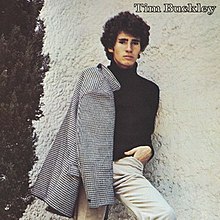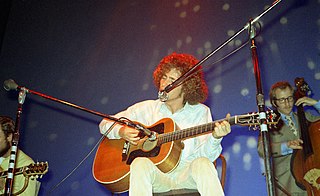
Timothy Charles Buckley III was an American musician. He began his career based in folk rock, but subsequently experimented with genres such as psychedelia, jazz, the avant-garde, and funk as well as unconventional vocal stylings. His commercial peak came with the 1969 album Happy Sad, reaching No. 81 on the charts, while his experimental 1970 album Starsailor went on to become a cult favorite. The latter contained his best known song, "Song to the Siren." Buckley died at the age of 28 from a heroin and morphine overdose, leaving behind sons Taylor and Jeff.

Starsailor is the sixth studio album by Tim Buckley, released on Herb Cohen's Straight Records label in November 1970. Starsailor marks Buckley's full embrace of avant-garde and jazz-rock styles into his music. Although it alienated elements of his fanbase upon release, it also contains his best known song, "Song to the Siren", which was written much earlier than the rest of the material. Bunk Gardner, a former member of the Mothers of Invention, joined Buckley's backing band to record the album. Also, Buckley began working again with lyricist Larry Beckett, after a three-album hiatus.
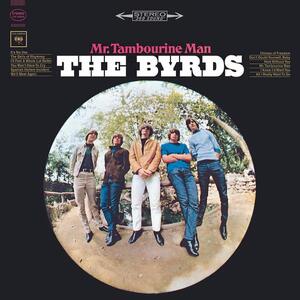
Mr. Tambourine Man is the debut studio album by the American rock band the Byrds and was released on June 21, 1965, by Columbia Records. The album is characterized by the Byrds' signature sound of Jim McGuinn's 12-string Rickenbacker guitar and the band's complex harmony singing. The material on the album mostly consists of cover versions of folk songs, primarily composed by Bob Dylan, and originals written or co-written by singer Gene Clark. Along with the Dylan-penned single of the same name, Mr. Tambourine Man established the band as an internationally successful act and is widely regarded by critics as representing the first effective American challenge to the chart dominance of the Beatles and other British Invasion bands during the mid-1960s.

Two Yanks in England is an album by The Everly Brothers, released in 1966.

Tim Hardin 1 is the debut album by folk artist Tim Hardin, released in 1966 on Verve Records.

Goodbye and Hello is the second album by Tim Buckley, released in August 1967, recorded in Los Angeles, California, in June of the same year.
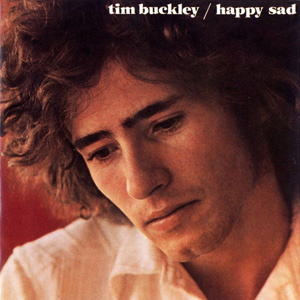
Happy Sad is the third album by American singer-songwriter Tim Buckley, released in April 1969. It was recorded at Elektra Sound Recorders in Los Angeles, California and was produced by former Lovin' Spoonful members Zal Yanovsky and, coincidentally, his subsequent replacement Jerry Yester. It marked the beginning of Buckley's experimental period, as it incorporated elements of jazz that he had never used before. Many of the songs here represent a departure from the binary form that dominated much of his previous work.

Sefronia is the eighth album by singer-songwriter Tim Buckley, released in September 1973.
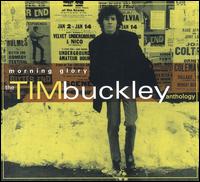
Morning Glory: The Tim Buckley Anthology is a compilation album by Tim Buckley. The two cds give an overview of Tim Buckley's career. The compilation contains material from the many phases of Buckley's career, and includes a previously unreleased version of "Song to the Siren", as performed in 1968 on The Monkees. The photo used for the cover art was taken by Linda Eastman, more commonly known as Linda McCartney.

Live at the Troubadour 1969 is a live album by Tim Buckley. The album was recorded at the Troubadour in Los Angeles, September 3 & 4, 1969.

Larry Beckett is an American poet, songwriter, musician, and literary critic. As a songwriter and music arranger, Beckett collaborated with Tim Buckley in the late 1960s and early 1970s on several songs and albums, including the critically acclaimed "Song to the Siren" which has been recorded by many artists, from This Mortal Coil to Robert Plant. He has also collaborated with British group The Long Lost Band, and local Portland indie band Eyelids.
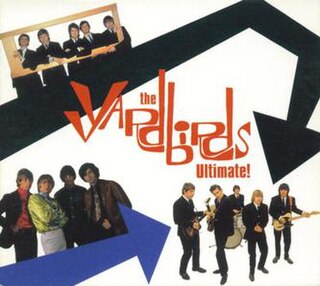
Ultimate! is a comprehensive career retrospective album by English rock group the Yardbirds. The 52-song two–compact disc compilation was released in 2001 by Rhino Records. The tracks span the period from the group's first demo recordings in 1963 to the last singles in 1968. They include all 17 of the group's singles, both A-side and B-sides, supplemented with more than a dozen album tracks, their performance for the film Blow-Up, and three early solo numbers by singer Keith Relf.

Peel Sessions is a live album by Tim Buckley. It was recorded in studio 1 at 201 Piccadilly London, UK on 1 April 1968, as a session recording for BBC radio DJ John Peel. The session was subsequently broadcast six days later on 7 April 7, 1968. The session consists of folk-oriented songs from Buckley's Goodbye and Hello - Blue Afternoon period recorded in a sparse manner with only Tim's vocals, two guitars and percussion. Peel would later comment on this session as one that "defines essential music".

Morning Glory is a compilation album by Tim Buckley. The album is a compilation of the Buckley's 1968 John Peel session and two further tracks taken from the May 21, 1974 performance for, BBC TV music series, The Old Grey Whistle Test. The performance of "Dolphins" is also available as a video on 2007 DVD release Tim Buckley: My Fleeting House.

The Best of Tim Buckley is a compilation LP by Tim Buckley. It presents Buckley as a folk artist with songs written between 1966 and 1970. The album features material from the studio albums Tim Buckley, Goodbye and Hello, Happy Sad and Blue Afternoon, in addition to "Song to the Siren" from his avant garde album Starsailor. This was the first new release, outside of Australia after Buckley's death. The album provides an overview of Buckley's folk beginnings, excluding material from his later albums.
"Song to the Siren" is a song written by Tim Buckley to a poem by his writing partner Larry Beckett, released by Buckley on his 1970 album Starsailor. It was also later released on Morning Glory: The Tim Buckley Anthology, the album featuring a performance of the song taken from the final episode of The Monkees TV show which aired on March 25, 1968.

If I Were a Carpenter is an album by American singer Bobby Darin, released in 1966. It was a significant change in direction for Darin considering his previous album was a collection of show tunes.

Sincerely is the sixth studio album by American singer Brenda Lee. The album was released February 12, 1962 on Decca Records and was produced by Owen Bradley. It was the first of two studio albums released by Brenda Lee in 1962 and did not contain any singles.

"Bluebird" is a song recorded by the American rock group Buffalo Springfield. It was written and produced by Stephen Stills, with co-production by Ahmet Ertegun. In June 1967, Atco Records released it as a single to follow-up their hit "For What It's Worth" (1966).
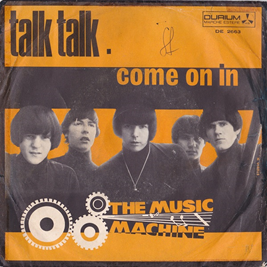
"Talk Talk" is the debut single of American garage rock band the Music Machine. It was released in November 1966, and produced the band's only Top 20 hit on the Billboard Hot 100. The song was included on their debut album, (Turn On) The Music Machine.
